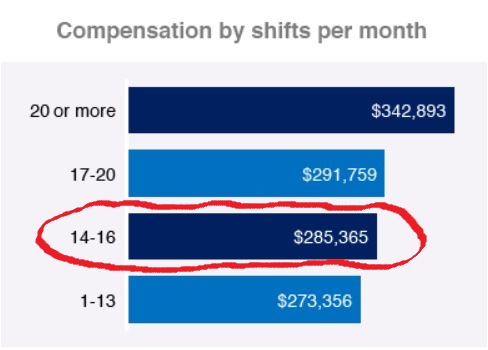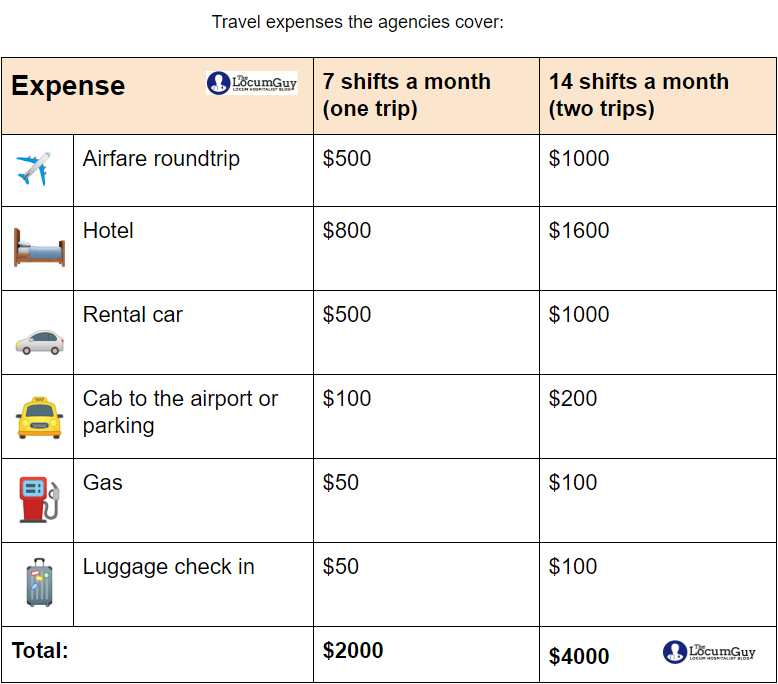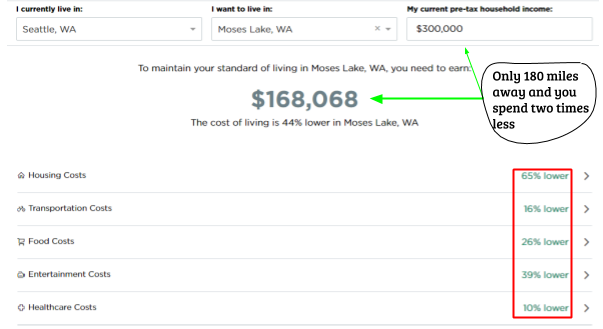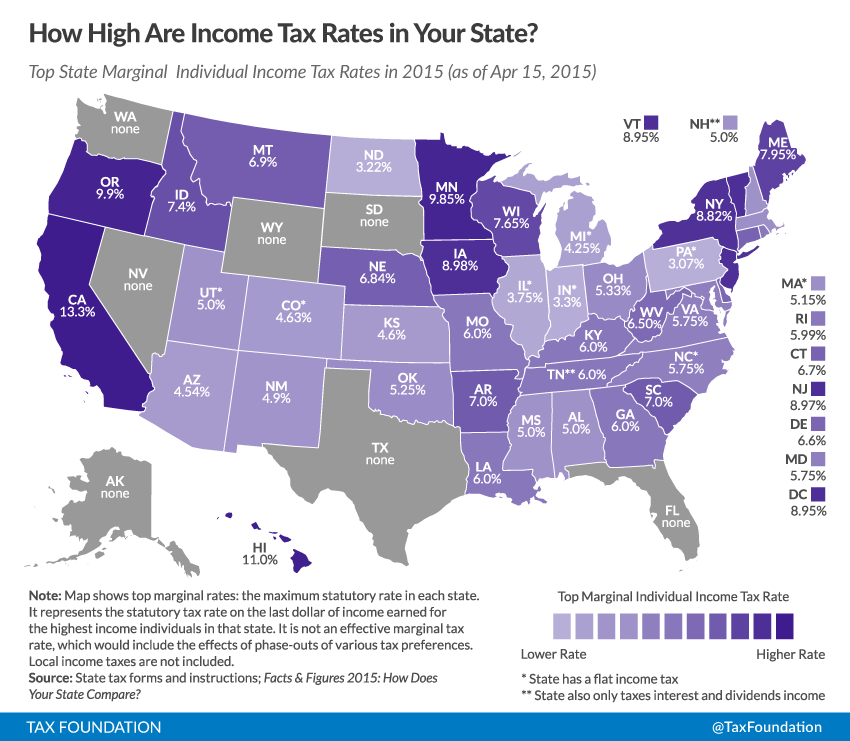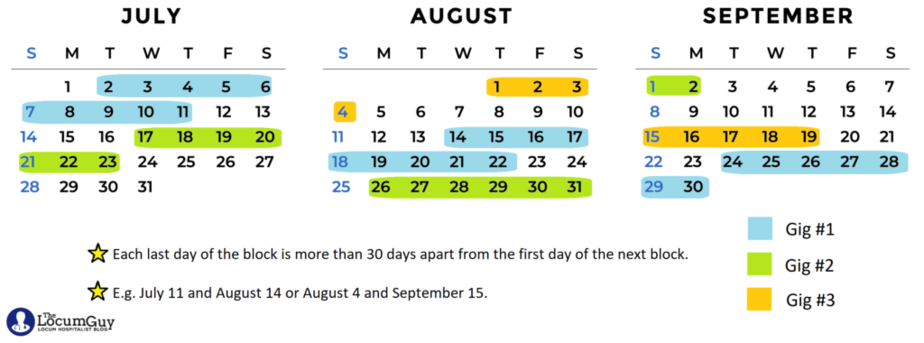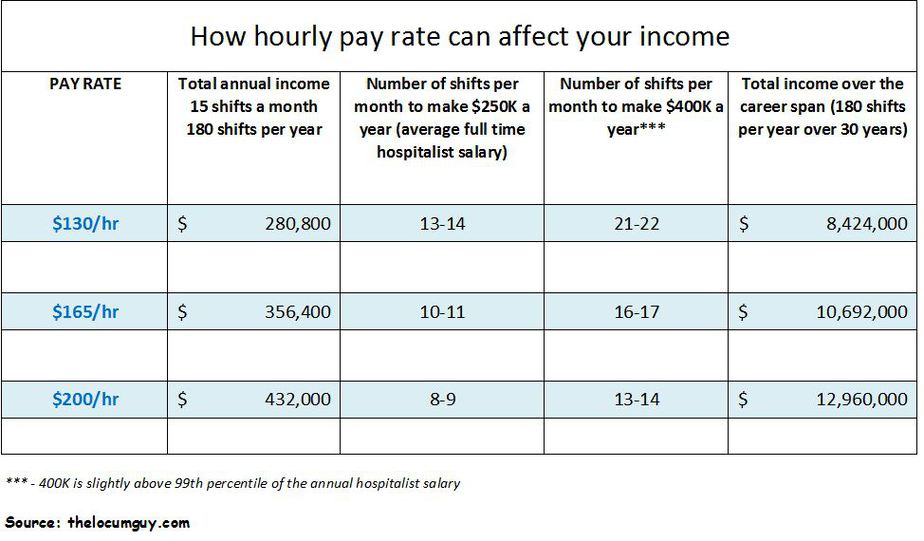

Vlad Dzhashi, MD
💡 Bonus: Hospitalist Gig Checklist – Ask RIGHT questions, Make MORE money! 💡
My first ever conversation with the locum tenens recruiter:
Excuse me, sir . . . do you think you might possibly maybe somehow pay me 150$/hr or so?”
Can you guess what the answer was?
We’ve all been in the awkward situation when we felt we were not getting paid what we deserved, but due to lack of the business training and experience, we just accepted whatever was offered.
My first conversations with recruiters were pretty stressful, since every time, I failed to get what I thought was a fair deal for the type of hospitalist gig I signed up for.
Over the years I got really good at negotiating and have been consistently getting higher pay rates than most of my colleagues.
In fact, a few of my hospitalist friends asked me to negotiate for them, and in one case, I was able to negotiate the rate from an initial $160/hr to $200/hr! Needless to say, I got few unexpected Christmas gifts and postcards that year.
In this post I’m going to give you “tools of the trade” for negotiating the pay rate with the locum tenens agencies to get what you deserve!
Here’s what you are going to learn today:
1 – How to get into the right “negotiation” mindset
2 – How to know how much to ask for
3 – How to make legitimate arguments to get what you deserve
4 – How to make the agency want to work with you and not others
5 – How and when to use the Locumguy’s secret Plan B
All right, boys and girls, without further ado, let’s get clicking….
1 - Locums on my mind...
First things first: you need to get yourself into the right “mindset.” Now, what do I mean exactly?
You have to remember, as a doctor, your skills are in very high demand! You’ve probably heard that before but never realized how great the demand actually is. Let me tell you, or rather, show you, what I mean:
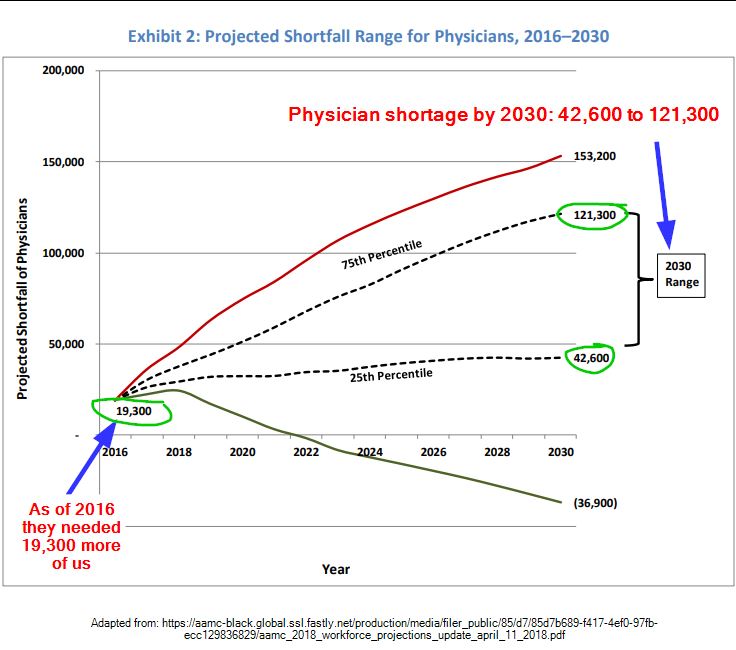
As you can see, in 2016 the estimated physician shortage was 19,300. By 2030 it will only get worse, which means plenty of locum gigs in the future.
The reasons for the huge demand are a growing aging population and the low doctor supply that has not kept up with the demand.
Besides giving me an inflated sense of self-importance, knowing this makes me more comfortable negotiating and asking for higher pay. It is also much easier to walk away from the bad deal if you find the pay rate unacceptable.
Now, let’s internalize what we’ve learned so far by repeating out loud:
I am a highly sought after professional; my skills are in a great demand!”
You need to do this 100 times first thing in the morning and 100 times before bed for two weeks.
If you don’t have time to do that, just practice saying it out loud a few times before calling the recruiter. I AM NOT KIDDING!!!
2 - Homework
The next step is to figure out what other people are paid for similar gigs in your area of interest. This is crucial!
There are two ways to do it:
1 – Talk to your colleagues practicing in the area.
2 – Check out my calculator here and read this post to get an idea of what affects the pay rate.
In any case, a hospitalist should not get less than $150/hr.
Set up your goal
Your goal will be the average pay rate based on your research + 20$/hr (+10-15%).
This is the rate you will request when talking to the recruiter. Why? Because of the effect of the “anchoring bias”. We tend to think in relative categories, so the first offer would set the stage for further talk.
Not only will you potentially get a great deal, but the recruiter won’t even consider playing games and making a ridiculously low offer.
3 - Lights, camera, action!
Before you make the call to the locum company, make sure you write down your goal number on a piece of paper and keep it in front of you during negotiation. You will also need it to write down the answers you get when asking the recruiter all the important details about the locum tenens job.
While talking to him, make sure you highlight what I call the “pain points.” What are those?
Pain points are anything that you think makes the job more difficult or increases your liability.
For example, here are some of the things that I and many other hospitalists find “painful”:
– PA/ARNP cosigns
– Open ICU
– Procedures
– Census higher than SHM recommendations
– More than an hour of driving from the closest airport.
If you decide the job would be a good fit (there’s no point to waste your time if it’s not, unless you are having too much fun negotiating), the next step is to talk about the pay rate.
Here’s the intro script that I tend to use:
I plan to work locum tenens long term and would like to build a relationship with an agency. So I’m currently in contact with a few locum firms and looking to get a competitive pay rate.”
Then you name your pay rate and back it up using the “pain points” that you highlighted. Mentioning them helps to justify your asking pay rate, because most doctors want “comfy” locum tenens gigs and recruiters know that.
Here are possible scripts that will help you to justify a higher pay rate:
This hospital seems to be busy: it has an open ICU; the census is high (refer to SHM guidelines); plus it’s in a rural area, so there will be some driving involved from and to the airport. That’s why the fair pay rate would be $***/hr.”
This hospital clearly lacks subspecialty support. I’ve had a stressful experience in the past when I had to transfer patients out every day which took lot of time and effort. So it will be worth my time only if I get $***/hr.”
You can also use “general” scripts that would work in any situation:
I’m currently getting $***/hr, so there’s no point in switching if I don’t get paid more.”
I talked to my colleagues working in the area and they get ***/hr, so I expect the same rate.”
These are just examples, but now that you’ve got an idea, you can come up with your own scripts that work the best for you.
Want to learn how to screen new locums gigs properly to avoid unpleasant surprises and negotiate the highest possible pay rate to make tens of thousands of $ more?
4 - The second round:
If the recruiter insists on the lower pay rate, I use a different kind of argument.
Instead of talking about the assignment itself, my strategy is then to give them a “flavor” of why they need to work with me rather than somebody else.
Here are the scripts that have worked like magic for me:
“You will LOVE working with me because…
I plan to work 14+ shifts a month.”
The more you want to work, the more appealing you are. It is always easier to credential and deal with one physician who’s going to average 14+ shifts/month rather than multiple locum guys committing to only a few shifts a month.
I’m very flexible and can do nights and/or swing shifts.”
Most physicians prefer to sleep at night, so you will stand out.
I am extremely liked everywhere I work. Because of that, I tend to stay long term in one hospital, and they always ask me to come back and take more shifts. “
Keep in mind that the recruiter’s salary depends on commission, so the longer you work, the more money they are going to make for themselves and the agency.
I live within commutable distance from the hospital and won’t need any accommodations or travel arrangements.”
This is a good one! The agency can save money on your travel expenses so that you can make more too!
Wash, rinse, repeat
If you cannot make the deal, then call another agency working in your area of interest. If there are too many firms covering the same area, aim for at least three. You should be able to get a good pay rate after that.
If still no luck, it could be one of few things:
- You need to do more thorough research to figure out how much you could get paid.
- The timing isn’t right, meaning too many docs have applied and possibly already started credentialing or even working at the facility.
- Location might be too “hot” Again, supply vs demand is not favorable.
Just wait for a couple of weeks to see if anybody calls you back. If you don’t receive any calls, contact the agency that offered you the best deal.
5 - Plan B
Even if you have to accept the offer that was far from your goal, do not get frustrated. I’ve got something really good for you:
Go through all the steps needed, secure your shifts, and after working for some time (few weeks to few months), use my secret plan B, which is….N.E.G.O.T.I.A.T.E!
Yes, again!
Let me explain:
I’ve noticed that I could get a healthy pay hike real easy after working and already making money for the agency.
Why is this so effective?
It’s easier to pay you more rather than find a new “working body.” Even if found, it will take a few months to have somebody start seeing patients due to credentialing, licensing and other hassles.
Here’s what you need to say when you call them up again:
Hi, (dear recruiter), I am approached by so many agencies working in …(your target state, city or area), and they are offering a much better deal. I hate to leave, so let’s find a pay rate that will work for both of us.”
Another hack is to use any newly discovered “pain points” to make an argument of why you need to get paid more. It won’t be too hard to find them. Believe me, after working at the facility, you always notice things that didn’t fit the initial info the agency gave you.
For example, the patient census is higher than what you were told, one of the core subspecialties is not there on the weekend, or whatever it may be.
P.S. Now, I would like to hear your thoughts. Do you find it hard to negotiate with the locum tenens companies? Can you share any tips or tricks that you use when negotiating? Please let me know in the comments below!











